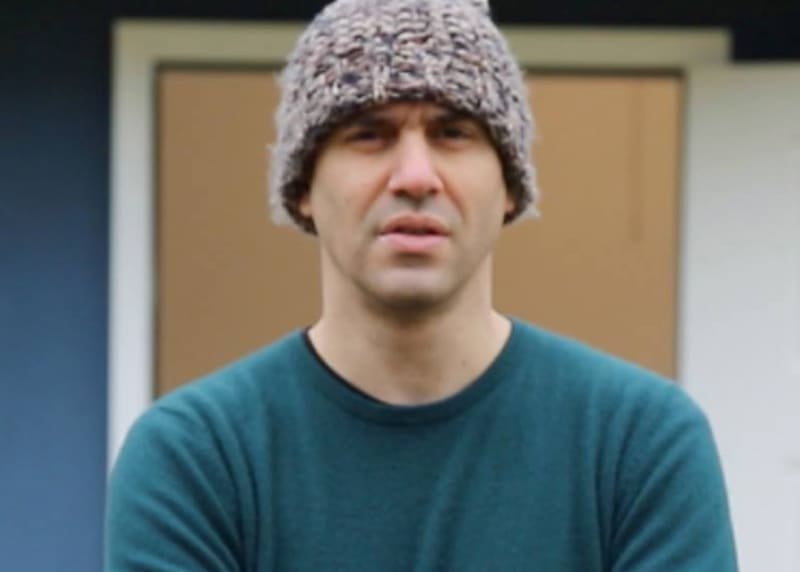
Biography
Bruno Verner is an Associate Lecturer for MA Music Production at London College of Communication.
Bruno is a composer, artist, musician, poet and cultural theorist, best known for his work with the tropical mutant punk-funk duo Tetine - a hybrid sonic organism/platform he has been running in collaboration with artist Eliete Mejorado since 1995. With Tetine, Bruno has created a multitude of music and performance works from the spoken word to electronica, including ritualistic actions, sound installations, film and video.
His music has been released on labels such as Soul Jazz Records (UK), Mr Bongo (UK), Bizarre Music (Brazil), Nada Nada Discos (Brazil) / Nausea Records (UK) and Slum Dunk Music (UK) - including an acclaimed electronic music album in collaboration with French artist Sophie Calle, Samba de Monalisa - Tetine Vs Sophie Calle, on Sulphur Records.
Bruno's work has been shown and performed in places such as the National Museum of Contemporary Art of Oslo, The Sternessen Museum, The Wire Adventures in Modern Music Festival in Chicago, Gorky Theatre (Berlin), the Barbican Centre, Serralves Museum in Porto, Whitechapel Gallery, Palais De Tokyo, Liverpool Biennial, Bordeaux Biennale, Triennale di Milano, Atelier Claus in Brussels, South London Gallery among others.
His music confronts, investigates, and celebrates questions of identity, the uses of voice, and body organicity. It explores the intersections of technology, precarity and physicality through a mutant hybrid of experimental pop, punk-funk, ambient, post-minimalism, spoken word, funk carioca, improvisation, queer modes of futurity and feminisms.
This is primarily grounded from a Global South political-aesthetic perspective with a particular interest in popular forms of modernism, autobiography, auto-fiction, language, anthropophagy, anti-colonialism, sexuality and memory.
Recent projects include the albums After the Future (2023), Music For Breathing (2023), Animal Numeral (2019), Colt 45: Underground Post Punk, Tropical Tapes, Lo-Fi Electronics and Other Sounds of Brazil 1983-1993 (2018), The Baron, The Bishop, The Judge, The President and The Relative - Tetine vs. Pasolini (2018), Queer Mutant Funk Cuts (2016), In Loveland with You (2013), From A Forest Near You (2010), amongst others.
Bruno Verner completed his PhD in the Department of Visual Cultures at Goldsmiths supported by AHRC/CHASE scholarship. His thesis entitled Spaced Out in Paradise: Post Punk Futurities, Politics, Transitions, and Other Voices in Brazil, is a practice-based auto-ethnographic post-punk study concerning the investigation of underground music and politics in Brazil in the 1980s.
His research articulates a particular genealogy of marginal experimental music in conversation with a system of formative historical, political, and aesthetic pasts, trajectories, and mutant sonic worlds, from the legacies of Brazilian Modernism through to the countercultural residues of Tropicalismo, and Anglo-American post-punk.
Bruno has contributed with the chapter 40 Degrees in Black for the book Post Punk Then and Now edited by the late critical theorist Mark Fisher, with Gavin Butt and Kodwo Eshun, released by Repeater Books.
He also compiled, presented, and mixed the first ever album of Funk Carioca (Baile Funk) produced in the UK, Slum Dunk Presents Funk Carioca Mixed by Tetine, (Mr Bongo Records, 2004), as well as an essential primer to early-1980s post-punk from São Paulo; the influential The Sexual Life of The Savages: Underground Post Punk from São Paulo, released on Soul Jazz Records in 2005.
Bruno was an active member of Belo Horizonte‘s underground post-punk and industrial scene from the mid-1980s, having played alongside pioneering acts such as R. Mutt, Divergência Socialista, Ida & e Os Voltas and O Grito Mudo – over a period spanning from 1984-1990.
He has run the label/radio show Slum Dunk Music, known for revealing a plethora of obscure sounds from Brazil since 2003.
Related area
View the MA Music Production course page.